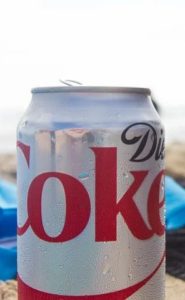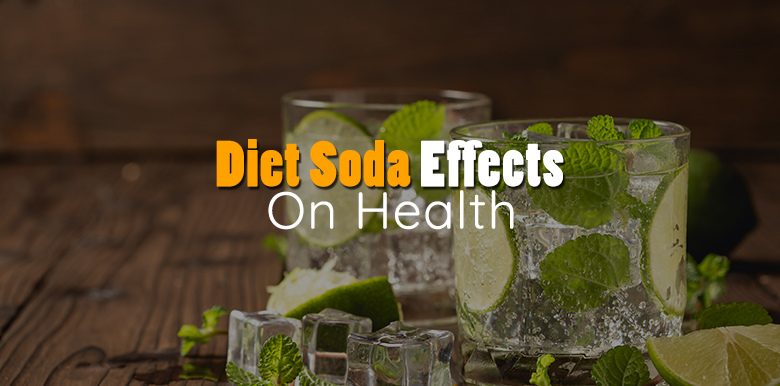When you’re searching for a drink with a bit of caffeine to give you a boost for the day, you might be tempted to reach for a diet soda, believing it is a healthier choice to make.
Yes, diet soda has zero calories. And yes, it’s an inexpensive and tasty way to get your caffeine fix. But the health effects associated with consuming it are more serious than you think. Headaches, cravings, mood swings and more are the results of drinking diet soda too frequently. Here are some facts that might make you rethink your drink of choice.

Diet Soda
Artificial sweeteners in diet soda can trigger headaches
Many diet sodas are sweetened with aspartame, an artificial sweetener that is sweeter than sugar. People who consume foods with artificial sweeteners are more likely to shun healthier food options for other artificially flavored food and are twice as likely to be obese compared to people who didn’t drink diet soda.
Diet soda has been linked to depression
In a study conducted by the National Institutes of Health, a survey of 263,925 adults nationwide indicated a correlation between the consumption of diet soda and a higher chance of a depression diagnosis. Soda drinkers overall were 30% more likely to be depressed, and diet soda added another 22% of risk into the equation.
Diet soda could interfere with your gut health
Gut health is important. The healthier your gut, the healthier your digestive tract. And the healthier your digestive tract, the easier it is for your body to properly digest food. But a study published in the scientific journal Nature revealed that diet soda may disrupt your gut health. Your gut has a balance of “good” and “bad” bacteria. According to the study, the artificial sweeteners that are included in diet soda may alter the type and function of the bacteria in your gut microbiome.
Diet soda drinkers have a lower bone density
In a 2006 study, it was concluded that women who drank diet soda had significantly lower bone mineral density than those who abstained. Low bone mineral density can set you up for osteoporosis, a disease that causes bones to become weak and brittle. Trade in the diet soda for foods like Brussel sprouts and sweet potatoes, both of which keep your bones healthy and strong.
Drinking diet soda can interfere with your sense of taste
Increased consumption of diet soda can interfere with your sense of taste, according to an fMRI study conducted by researchers at San Diego University. Twenty-four diet soda and non-diet soda drinkers were given intermittent sips of sugar water and artificially sweetened water and asked to rank the drink’s enjoyability. The brain’s reaction to both drinks among diet soda drinkers was nearly identical, meaning their brain’s reward system was incapable of differentiating between sugar and artificial sweeteners.
Drinking too much diet soda could be bad for your kidneys
According to the National Kidney Foundation, diet soda could be bad news for your kidneys. One study determined that women who drank several diet sodas a day showed a significant decline in kidney function.
Drinking diet soda doesn’t always equate to weight loss
Just because it’s calorie free doesn’t mean it’s an effective weight-loss tool. A study in the Journal of the American Geriatrics Society found that diet soda drinkers age 65 and older gained triple the abdominal fat compared to their peers who didn’t consume the drink.
Now that you know the effects it has on your health, we hope you ditch that diet soda and substitute it with something healthier.
